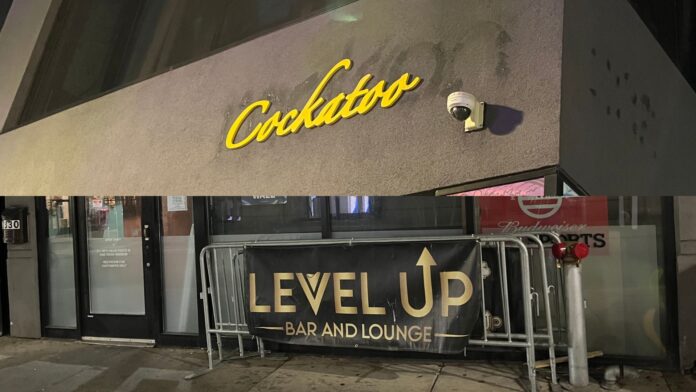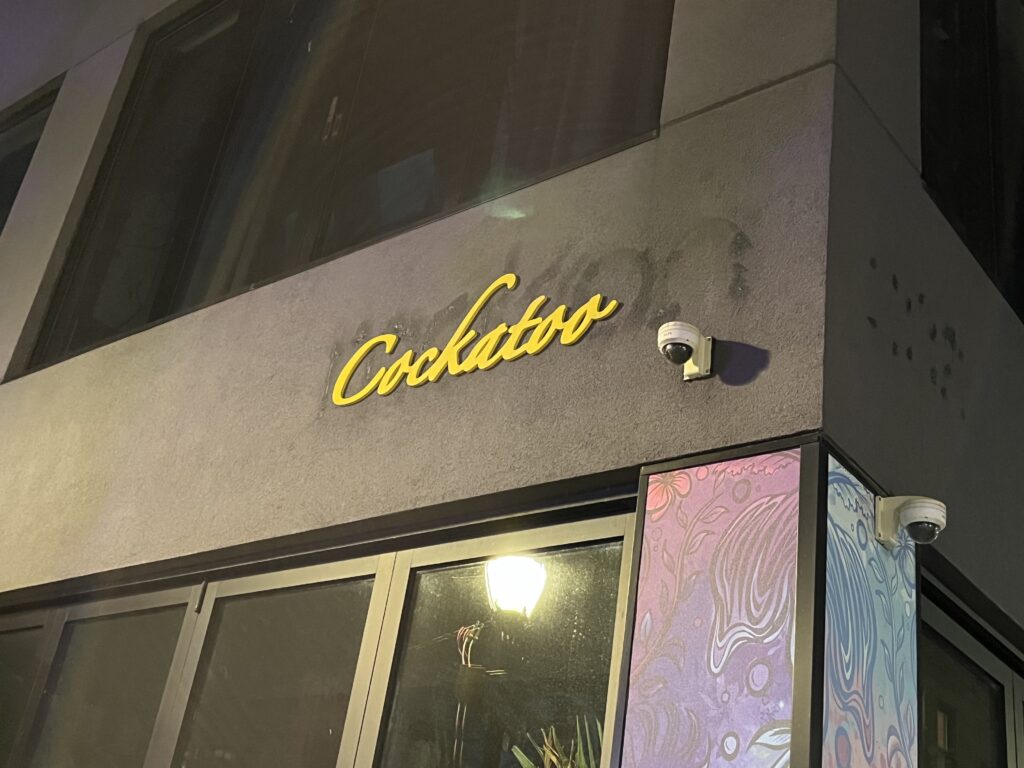
“These spaces were more than just bars. They were community hubs where we felt truly seen and celebrated,” said Jacen Bowman — a local nightlife celebrity who is also vice president of Philadelphia Black Pride — about recent announcements made by Cockatoo and Level Up Bar & Lounge that both bars will be closing soon.
“I will never forget the vibrant drag performances, the unique camaraderie, and the feeling of belonging that surrounded me every time I stepped through their doors,” he said. “Level Up became our version of ‘Cheers’ where everybody knows your name. The sense of family was palpable, and the joy of dancing in a space that felt authentically ours is a memory I will always cherish.”
The bars — both COVID-era establishments which are owned by people of color — have been havens for Black and Brown performers and patrons, opening with specific intention to welcome people of color despite racism elsewhere in the Gayborhood. At presstime, it is unclear when the establishments will close.
In social media posts announcing the impending closures, both bars alluded to financial constraints, noting the difficulties of launching and surviving as small businesses during the pandemic. Although Level Up’s owners are seeking a more affordable venue to re-open, a new location has not yet been secured. This might be a challenge — as the hopeful owners of Val’s Lesbian Bar, which has hosted pop-up events as they’ve searched for a venue — have not had much luck despite checking out multiple neighborhoods.
Bowman — who said he was saddened to hear about the closures but not entirely surprised — cited gentrification, financial inequity, and a lack of genuine inclusivity in the Gayborhood as some of the problems facing marginalized communities who want to maintain a presence in the neighborhood.
“The financial pressures and systemic barriers faced by Black and Brown queer businesses in the Gayborhood have been mounting for some time,” he said. “This situation calls for a reevaluation of how we support diversity in nightlife and ensure equitable opportunities for all.”
He said there needs to be a concerted effort to address the systemic barriers faced by queer people of color — noting that rent controls, financial support for minority-owned businesses, and initiatives that promote inclusivity and diversity are crucial. While he noted the importance of city leaders to work with the LGBTQ+ community in order to address these challenges in a sustainable way, he also noted that the broader community must recognize the value and necessity of diversity.
“Advocacy and allyship play significant roles in creating a more inclusive environment,” he underlined. “We need to support one another and push for systemic changes that ensure all members of the LGBTQ+ community feel safe, celebrated and empowered. Let’s remain hopeful and proactive in our efforts to reclaim and redefine our spaces.”
Despite his message of hope, Bowman admitted that he’s also angry.
“I am deeply concerned about the diminishing safe spaces for queer people of color. Without these havens, there is a risk of increased marginalization and exclusion. Safe spaces are essential for fostering community, creativity and well-being, and their absence can have significant impacts on mental health and community solidarity,” he said, noting that many Gayborhood bars are not as welcoming as they need to be to Black and Brown people.
Although there’s a history of rampant racism, the most recent incident to occur is the barring of a Palestinian performer — Leila Delicious — for attempting to include a pro-Palestine sign in her act. Many who avoided Tabu during the immediate fallout following the incidents have continued to do so.

Tabu was recently sold and has rebranded with a new name — 254, which reflects the street address on South 12th Street, but many potential patrons want to hear directly from the new owners and see if intentional efforts to right the venue’s past wrongs occur before they decide how to engage with the space.
Even if Tabu or other offenders make efforts to change, Bowman said it will take time to rebuild the sense of safety and community that was lost. While he is hopeful about potential improvements, he noted that the Gayborhood is extremely divided and that racism still exists there.
Level Up and Cockatoo have been two of the most popular venues where performers boycotting Tabu have taken their shows.
“Both venues opened their doors, embraced us with open arms and created a space for new shows to emerge and new performers to grow and host,” said Cyrus K. Stratton — a local drag king whose art often intersects with activism.
“It is completely shocking to see their doors close and to not know what’s next for many of us,” said Stratton. “I think it came as a major shock to us all — including some who worked there behind the bar or as producers of shows in that space. There were no rumors through the grapevine.”
He noted that the closures have left performers unsure “where to run for protection and shelter and regular bookings that pay for roofs over many of our heads” with many still searching for alternatives.
“I think many of us are additionally in fear that some of the queer community and performers may run back to problematic bars when we have all agreed to stick to collective liberation and boycotting those spaces,” Stratton added.
Bowman believes some performers may look toward emerging spaces or create new pop-up events.
“I’ve turned to these bars when I felt most profoundly alone and unwell,” said TJ, a Black, gay man who has been an occasional patron at both establishments since they’ve opened. “I might not even always talk to someone — but being around people who look like me and feel like me brought me a sense of belonging when I’ve felt isolated.”
He’s worried, given the recent election results, that the world will begin to feel even less welcoming to LGBTQ+ people of color and that there will be fewer places to turn to just “go and be” when people feel down.
“Where will we go?” he asked.

